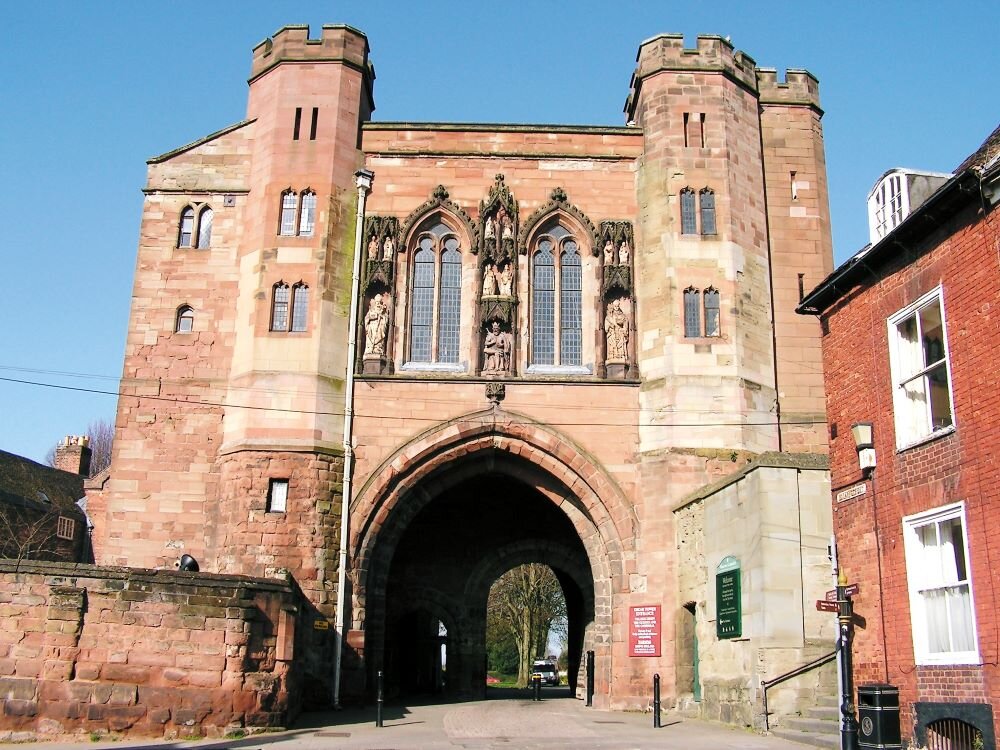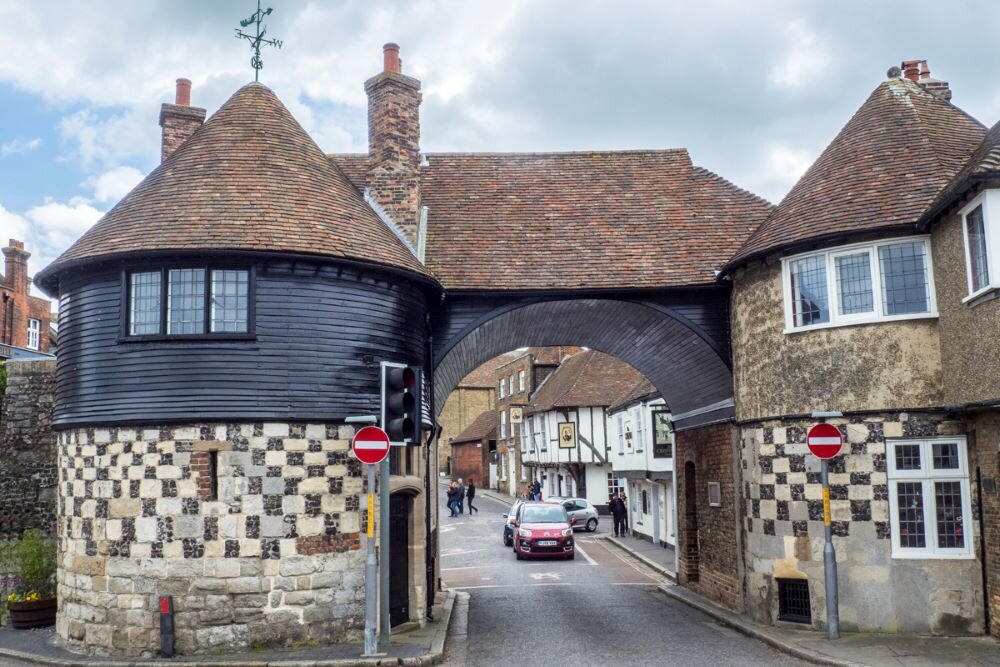May 8th 1471: Trouble in the North The Edgar Tower: Gateway to Worcester’s Monastic Precinct Rumours of a Northern rising grew, and Edward had to confront them. He decided that another army was needed, and to marshal it he would go to Coventry. The King, being at Worcester, had certain knowledge also, that certain his rebels of the north parts began to make commotions, and assembles of people against him, in the quarrel of Henry, called King; for which cause he kept not the right way to London, as he had purposed, but, intending to prepare a new fellowship against the said rebels in the north, and, to be in a good strength of people, whatsoever should happen, he determined himself to go to Coventry Edward found time to write yet another letter to Sir Henry Vernon, maybe trying to persuade him to follow his command by explaining the reason, and his fears of another attempted insurrection. Suggesting the potential destruction of the Church was taking persuasion to another level. 1471, May 8th. Worcester. Trusty and well beloved we greet you well and desire and also charge that immediately after the sight of these our letters with such fellowship defensibly arrayed as ye goodly can make ye come with us wheresoever ye shall here that we be without failing, upon the faith and allegiance ye owe unto us and forfeiture of all that ye may forfeit. Given under our signet at our monastery of Worcester viiith day of May. Cause and consideration why we write to you at this time is this: albeit God of his grace hath given with us the victory of our great rebels, and that Margaret late called Queen is in our hands, her son Edward slain Edmund called Duke of Somerset, John Earl of Devonshire with all the other lords knights and noblemen that were in their company taken or slain, yet we now understand that commons of divers parts of this our realm make murmurs and commotions intending the destruction of the church, of us our lords and all noblemen, and to subvert the public of our said realm which we in our person with God’s help and assistance of you and other true subjects shall mightily defend the same and we will that ye be with us altogether on Tuesday next. Sign Manual and signet. He left Worcester Coventry, from where he could monitor events in both the north and the south east. May 9th 1471: Thomas Neville, the Bastard of Faucenburg The Barbican Gate, Sandwich King Edward was right to be concerned about further risings in the country. As well as stirrings in the north he was also watching Kent, often the home of rebellions. When Warwick left London to confront Edward, way back in March, he asked Thomas Neville, his cousin, to raise men in Kent. These had not been involved in any campaigning to date. Thomas Neville, or Fauconberg, was the natural son of Warwick’s uncle, Lord Fauconberg, and history has labelled him the Bastard of Fauconberg. He was a noted sailor, credited with clearing the east coast of pirates in more peaceful times, he joined his cousin’s rebellion and provided a fleet to protect Warwick and Queen Margaret’s crossings. Not much is known about his actions through April, but in early May, too late to help the cause, he was preparing to assault London. He had landed at Sandwich and started raising support. His ships sailed north along the Kent coast and into the Thames estuary. And in the same time that the battle of Tewkesbury was, Sir Water Wrottesley and Geffrey Gate, knights of the Earle of Warwick’s, were governors of the town of Calais, did send Sir George Brooke knight out of Calais, with ccc. of soldiers unto Thomas Bastard Fauconberg, that was on the sea with the Earle of Warwick’s navy, that he should the navy save, and go into Kent, and to raise all Kent, to that intent to take King Harry out of the tower and destroy King Edward, if he might. This is from Warkworth’s chronicle, which goes on to say that Fauconberg went to Canterbury where the gentlemen of Kent answered his call, and a move on London was started. The Clever Boy will just add that Sandwich was an important Channel port and often used as a point of departure and arrival in the fifteenth century. |
Composer Andrew Dittman Releases New Collection of Sacred Music
-
Noble and Accessible, Ever Ancient, Ever NewI am delighted to announce the
release of new sacred music by American composer Andrew Dittman called The
Kyria...
1 hour ago


No comments:
Post a Comment